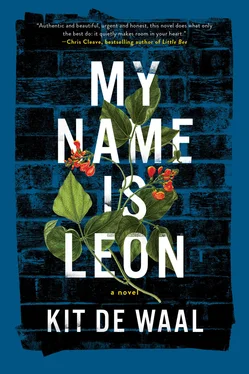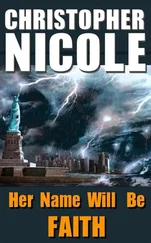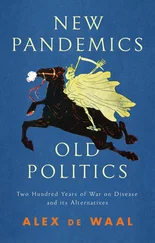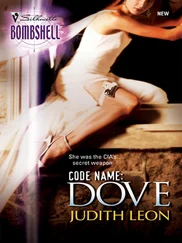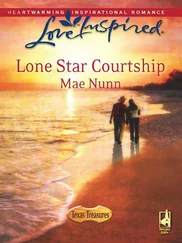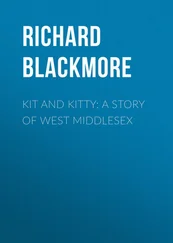There was virtually no research involved. I used to write training manuals for foster carers and social workers (in another life); I sit on an adoption panel (a local government board that makes decisions about which children should be adopted and who should adopt them); I was a magistrate (lay judge) for many years; and I have two adopted children. My mother was a also foster carer. As for the riots, in 1981 I was living about a quarter of a mile away from some of the worst riots in the UK. So I think that a lot of the detail came from my personal experience.
3. Leon is a very convincing child narrator. What was the most challenging aspect of writing from a young boy’s point of view? Why did you decide to tell Leon’s story from his point of view?
The most challenging aspect was thinking all the time about what is important to a child versus what we as adults notice. For example, sometimes I would literally get out of my chair, squat down, and look at the world from four feet high. What is different? What do I notice about people from that height? Then I tuned into my memories of being with my parents and their friends. Oh the boredom! The conversations that seemed to have no point about people I didn’t know, about subjects I couldn’t care less about, and all the time having to be quiet or having the door shut as soon as things got interesting. I tried to translate that into Leon’s life, and work out what he would be thinking given his circumstances and preoccupations. I also wrote with a picture of Leon (a picture of a child from the Internet) pinned on my screen so I didn’t forget whose story it really was. Lastly, I tried to not use any words that Leon wouldn’t understand or get the gist of. I tried to simplify the language of the book as much as possible. Apart from the psychologist’s report that he sees in the social worker’s bag, the language is made up of words in Leon’s knowledge if not his repertoire. As for telling the story from his point of view, no one else could know what he felt — no one else could tell his story but himself.
4. As the daughter of a mixed-race couple and the mother of two Native American children, do you feel particularly called to write about race and racial tensions? How do you manage to navigate the complexities of race in your work?
My children are actually not related by blood. My daughter is Lakota/black/white and my son is Caribbean/white. My husband is Austrian/Dutch/English and I am Caribbean/Irish. I wish I could answer the question about navigating the complexities of race but it’s so second nature — first nature — that I hardly realize I’m doing it. In 1960, when I was born, there were virtually no mixed marriages. My siblings and I were “both” and “neither.” We were not part of either immigrant community (Irish or black), or English quite obviously, yet we were part of all of those communities and saw them from the inside and the outside. This belonging and not-belonging actually gives you the ability to articulate, I feel, what it is to be black or white or Irish or neither, because you have an objective eye — when you want it. And, of course, you feel deeply when any of those communities are maligned or suffer racism and exclusion. It is indeed a complex issue and one that’s not become any simpler with time.
5. Did you draw from your real-life experiences to write about the foster care system?
Yes, my mother was a foster carer and a childminder. She’s not exactly Maureen and not at all like Sylvia! She did, however, fill our house with children and playmates. There were already five of us and there were at least five other children around throughout my childhood. Our house was a mess of toys and diapers and bottles and sterilizers and bikes and hanging laundry and biscuits and tears and laughter. It wasn’t idyllic, as we were pretty poor and always hungry, but there was something delightful about the ever-changing playmates and chaos.
6. Do you agree that ultimately My Name Is Leon is a novel about love? Why or why not? If not, what would you name as the major theme(s) of the novel?
It most definitely is a love story — several love stories. It’s about the love of a mother for her children, the love of two sisters, the love of a stranger for a child, and ultimately the love of one brother for another. It’s also about loss and acceptance. There are many losses in the book: Leon’s parents’ loss; Tufty and Mr. Devlin have both lost children; Maureen and Sylvia have both lost men; Leon’s grandmother loses her son, her life, and her grandson; and, of course, Leon loses his brother, his father, his mother, his belongings, his identity, his school, his bedroom, his toys, his grandmother, his sense of self-determination, his agency.
7. Why did you choose to set the novel during the 1980s? In your opinion, have racial tensions improved since then? If Leon and Jake were to be taken into foster care today, do you imagine their fates would be different?
I set the novel in 1981 because racial tensions were very high; the Royal Wedding of Charles to Diana had reached frenzy point by the summer, and I wanted Leon to be as insignificant as possible in relation to these big social events. I also wanted him to be outside of the house, and as we know, these days boys of that age are on their PlayStation 24/7! Unfortunately, yes, if Leon and Jake were taken into foster care today they would very likely be split up.
8. As someone who has worked for years in criminal and family law and who frequently writes about the forgotten and neglected, do you think Leon’s story is a common story? Do you think that arguably all of the characters in the novel are forgotten or neglected in some way?
Leon’s is sadly a very common story. Black boys over seven years of age are extremely difficult to place in adoptive homes. White, healthy babies are very easy to adopt; there is a long waiting list for them. Leon’s story is played out over and over in adoption services all over the UK. He will go into care: if he’s very, very lucky he will stay with the same foster carer until he grows up, but that would be unlikely. More commonly, he would move several times during his foster care. Black men and boys are overrepresented in prisons, in mental health institutions, and in unemployment. Many of those men and boys have come through the care system which, although it is populated by committed social workers and foster carers, often fails to replicate the best of family life. That is not to say that all family life is good. Leon would not have thrived had he stayed with his mother, but when family life works for children, it works well.
I think all the characters are forgotten or overlooked in some way. I am truly fascinated by the notion of being nobody or being seen as nobody. Maybe it’s being the onlooker again, being slightly outside of the mainstream. I don’t think there are any insignificant people or insignificant stories. There are huge domestic dramas happening all over the world at any given time: on a park bench, in a small kitchen, in a hospital waiting room, at the side of the road. Those are the stories I’m drawn to telling.
9. Share with us your writing heroes. Who is your favorite author? Who are you reading now?
I have so many heroes. I began my reading career with the classics so I have to include some of those authors in my top ten, who are:
Gustave Flaubert
Graham Greene
Walter Mosley
Cormac McCarthy
Arnold Bennett
Kevin Barry
Sebastian Barry
Jane Gardam
Emile Zola
Zadie Smith
I’m currently reading Kevin Barry’s new novel Beatlebone , which is about John Lennon and his purchase of an island off the coast of Ireland. I say I’m reading — I’m actually listening on audiobook because Kevin Barry himself is reading it, which is an absolute treat. Not every author is a good reader, but Kevin Barry gives a true performance.
Читать дальше
